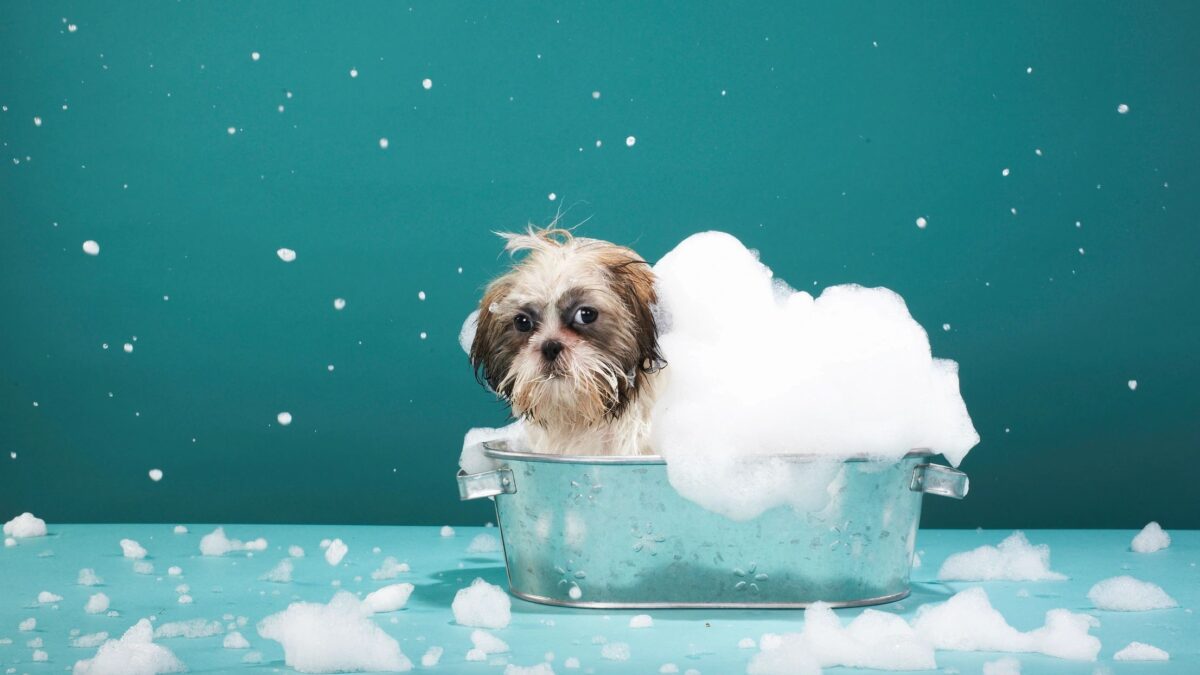Keeping a pet has several benefits but also comes with many responsibilities, including ensuring a hygienic environment for them to thrive. As furry friends become cherished family members, their well-being takes center stage, making it essential to be proactive about this. As research reveals that many owners spend over 800 hours cleaning fur babies annually, it proves that pet parents recognize the importance of a safe and clean home. Here are some pet hygiene rules.
- Regular bathing rituals
Like humans, pets like dogs need bathing, but there’s a catch. Too much of it can cause dry furs and skin irritations, while less frequent baths create an unpleasant smell. Although some pet blogs advocate for four to six weeks, you must balance the frequency to get the timing right. There’s been debate on whether to bathe cats because they are excellent self-groomers and may not require a real bath if they spend most of their time indoors. The only time to bathe a cat is when their coat is visibly dirty, and only special feline shampoo and water can get it out. Avoid using human shampoo for your furry companions, as it can trigger a chain of inflammations that affect their fur health. Even with pet-friendly shampoo, it’s important to rinse thoroughly to avoid soap residue on their body. Your pet will likely lick any residue on their fur, which may cause further problems if ingested.
- Dental care
Oral hygiene is often overlooked in pet care, but you’ll soon discover why it should be a crucial part of routine care. Like humans, pets experience dental problems like tartar buildup, gum disease, bad breath, and tooth decay. These dental issues are not restricted to the oral cavity because the infection can spread to your pet’s kidneys, liver, and heart. That can be too much for a pet, so you must be conscious of their dental care. Use specially formulated toothpaste and brush to clean your pet’s teeth. Unlike humans, your pet will likely be unable to spit out the toothpaste after brushing. That explains why their toothpaste is specially formulated to prevent accidental poisoning. Two or three times a week is ideal to keep their teeth clean and free from oral bacteria buildup. Getting your pets some dental chews and toys are excellent ways to keep their teeth in good condition. Additionally, try to take them for regular veterinary check-ups to catch any dental problems early.

- Keep the immediate environment clean
A clean environment benefits you and your pets by safeguarding your health and general well-being. Invest in a quality pet-friendly vacuum cleaner to eliminate dander and shed fur on your carpet and couch. Dander and pet hair are allergens that can trigger extreme respiratory reactions in people with asthma. It’s equally important to clean after your pets when they enter the yard. It can certainly be challenging to keep up the cleaning routine whenever they go, so professional pet cleaning services like Swoop Scoop make it easy for you. Also, it’s worth noting that accidents can happen with your pets, even in places you least expected them to go in or around the house. Never run out of pet-safe cleaning supplies to eliminate any mess. Another noteworthy point is to train your pet to use a particular spot for bathroom activities. Proper house training helps reduce the burden of looking around the house to clean up waste left behind. You can enjoy spending time with your pet when these measures are properly implemented.
- Pay special attention to pet grooming
People love to watch pet shows where dogs like the Shih Tzu are given a good trim. Certain dog breeds require regular grooming to prevent their furs from getting matted and tangled. Grooming also helps your pup shed less because it keeps their fur healthy and increasingly free from fleas. Grooming includes trimming your pet’s claws to prevent accidental injuries and discomfort. Please pay attention to their ears, eyes, and nose to catch any infection before it gets out of hand. It’s important to wipe your pet’s eyes and ears with extreme care, as these are sensitive areas. Cats and dogs are prone to ear infections, so keep an eye on those. Only use pet-friendly cleaning products to avoid causing harm while maintaining a grooming routine. Admittedly, not all dog and cat breeds require regular trimming. Some have shorter furs that don’t grow long to cause problems.
These simple yet practical tips can go a long way in keeping your pet healthy.
















